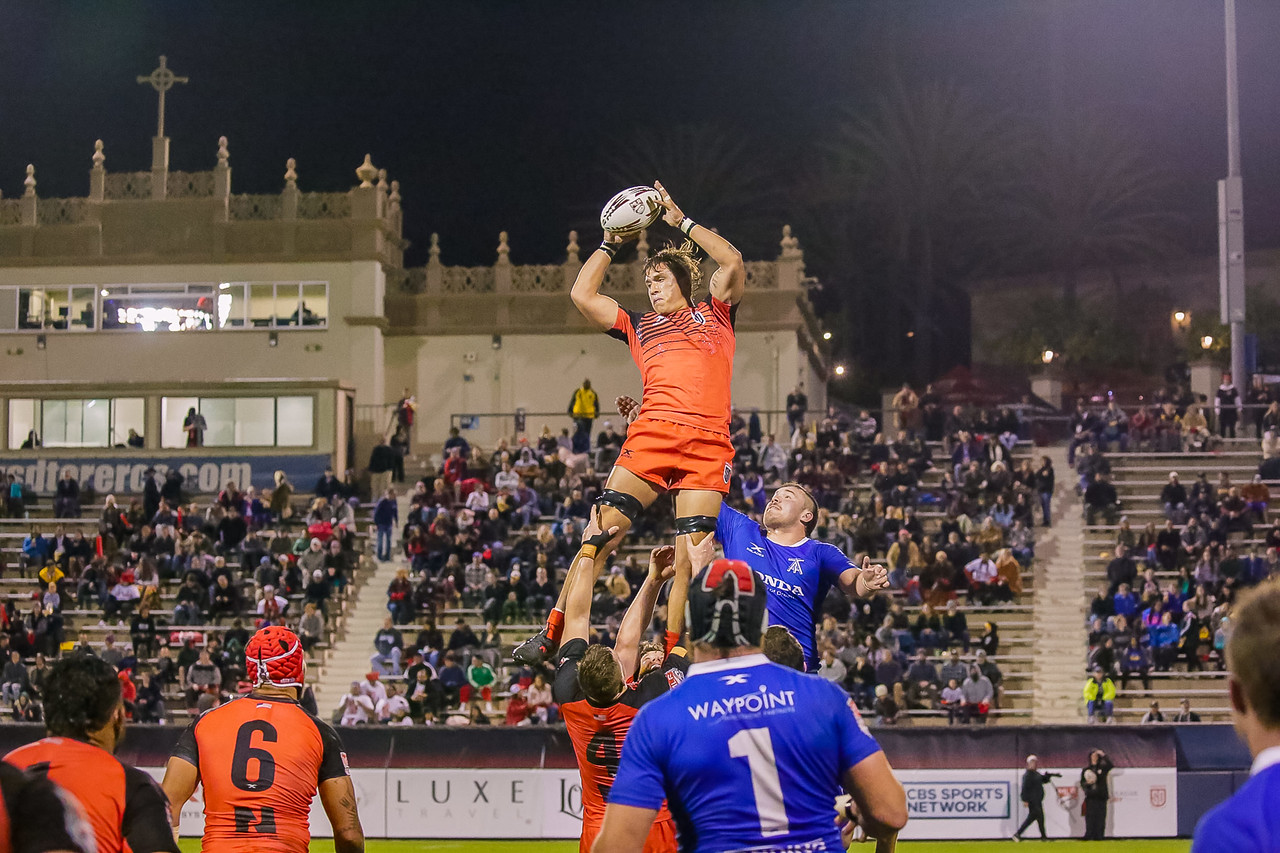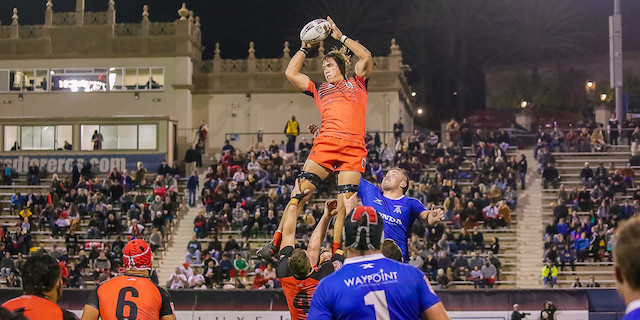
Photo credit: Griff Lacey
A long, sustained growth is in the cards for Major League Rugby.
The league is avoiding a big splash before disappearing by staying close to earth with expectations, commissioner Dean Howes said.
The league started last year with a truncated, 31-game season with seven teams and has nine teams for a 75-game 2019 season, but by 2022 there’s likely to be 16 teams, Howes said. Until then, when the league hits a wide enough market reach to have true success, Howes said the league will continue to build itself slowly across the nation.
READ MORE: The US Rugby Players Association and Its Goals for the Future of the Game
“It’s in your partners and your expectations,” said Howes, who has previous management experience with Real Salt Lake and the St. Louis Blues. “You have to know what can spend and can’t spend and have realistic expectations you can and can’t drive. No league has reached its full stride in a season, or five or 10.
“Major League Soccer is extremely successful, but it is still just hitting its full stride and is 20 years into it.”
With slow and deliberate growth, Howes believes Major League Rugby can grow into another major sports league in the United States. The league already has teams in Austin, Texas; Denver; Houston; New Orleans; New York City; San Diego; Seattle; Salt Lake City; and Toronto. Teams are lined up for the next two seasons in Boston, Washington, D.C., Atlanta and Dallas, with potentially two or three to be added.
The league and teams are a single entity, like the MLS, not a franchise model. Operators of the teams are also owners within the league.
By the end of this year, Howes said each of the nation’s major media markets, save for maybe Chicago, will be filled with teams. Once all those teams are playing, he believes there will be enough market coverage for the league’s media packages to be relevant. Beyond media deals, the relevancy within markets is important in building fanbases. There is already a robust club level of rugby across the country, the middle ground soccer was missing. But unlike the base MLS had, youth rugby needs to be built up.
“You have to be balanced across the country,” he said. “We need to focus on being relevant not just in major markets, but within those markets. Ann evidence of success comes with how we penetrate those markets, how we help build the sport out that’s how it will grow.”
Currently, there are TV deals in place with ESPN, CBS Sports Network and AT&T Sports Networks. To secure those deals, Howes said he had to sell the overall vision of the league’s future.
“All of the TV partners want good content and I think this is great content,” he said. “They need inventory and we need exposure. As long as we can continue to grow with them and not overpromise and underdeliver we can stay within those partners.”
[mc4wp_form id=”8260″]
It has many of the factors Americans like in their sports, he said, like high-scoring affairs and easily countable states. And for Howes, a self-proclaimed sports fan who can find something about all sports to enjoy, rugby converts easily to TV, unlike some other sports. Unlike the necessary wide angles for some sports to track balls and pucks, rugby telecasts can get minor details.
“People will like it in stadium and on TV,” he said. “You see them with bumps and bruises and sweat. It’s a physical game and you see all of that. If you can get people to watch and understand, like any sport, you start converting them.”
As the TV partners seem to understand the vision, Howes said foundational partners are key to the growth of the league as well.
“In the world of sports, your first sponsors are those you’re doing business with, those people literally getting value from you and your business,” he said. “As you grow and become stronger, then you reach out into those partners who love you because of sheer brand strength.”
Rugby is an international sport with plenty of room for growth in North America, much like the MLS had with soccer. European rugby leagues are already looking at North American cities, according to a BBC article suggesting teams in New York and Toronto for England’s Rugby Football League.
“Obviously the other leagues want to keep an eye on us, what we’re doing and want to participate in the appropriate markets,” Howes said. “We have the most headroom for growth and we’re the largest economic country in the world.”
READ MORE: Major League Rugby Partners with CBS Sports Network
Howes knows that growth will take time, even just to get a foundation set for future growth. He’s not planning to rush it.
“We have the passion to say this sport deserves to be amongst the other major leagues,” he said. “We need to be able to say this is what it takes to sustain this thing for five years or 15 years.
“We’re in it for the long-haul and funded and structured for the long-haul.”


![[Subscription Customers Only] Jun 15, 2025; Seattle, Washington, USA; Botafogo owner John Textor inside the stadium before the match during a group stage match of the 2025 FIFA Club World Cup at Lumen Field.](https://frontofficesports.com/wp-content/uploads/2026/02/USATSI_26465842_168416386_lowres-scaled.jpg?quality=100&w=1024)
![[Subscription Customers Only] Jul 13, 2025; East Rutherford, New Jersey, USA; Chelsea FC midfielder Cole Palmer (10) celebrates winning the final of the 2025 FIFA Club World Cup at MetLife Stadium](https://frontofficesports.com/wp-content/uploads/2026/02/USATSI_26636703-scaled-e1770932227605.jpg?quality=100&w=1024)












